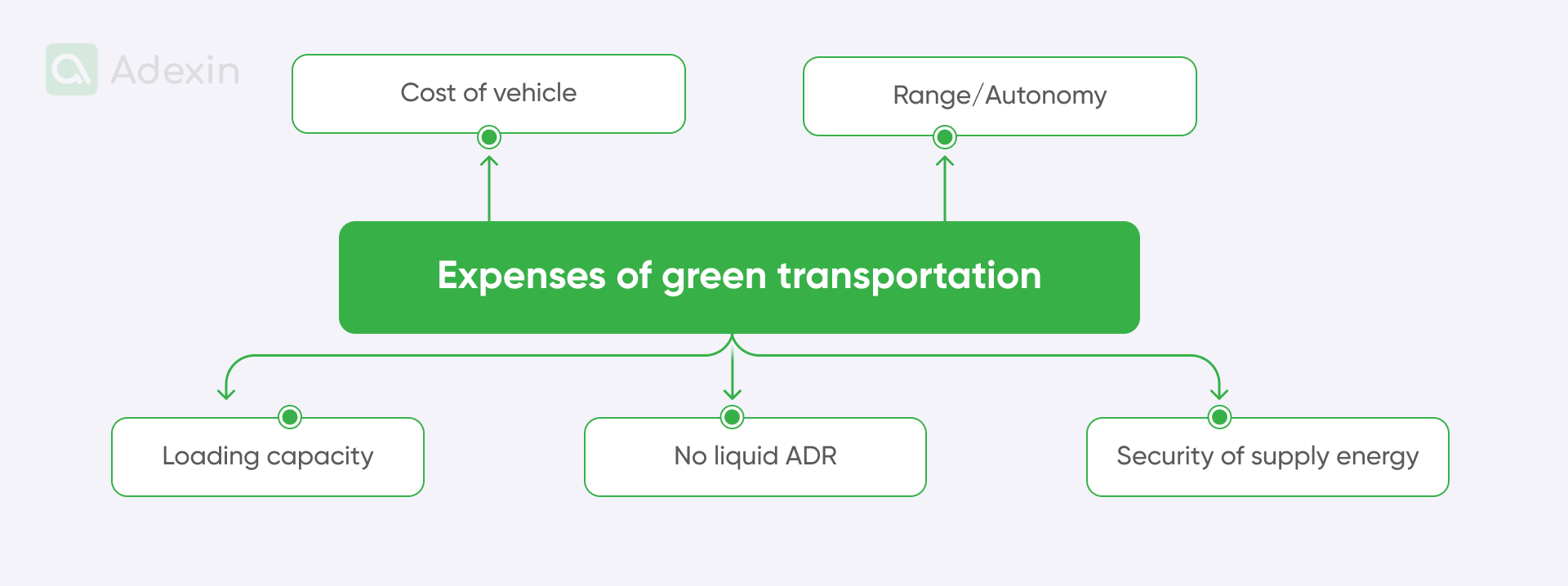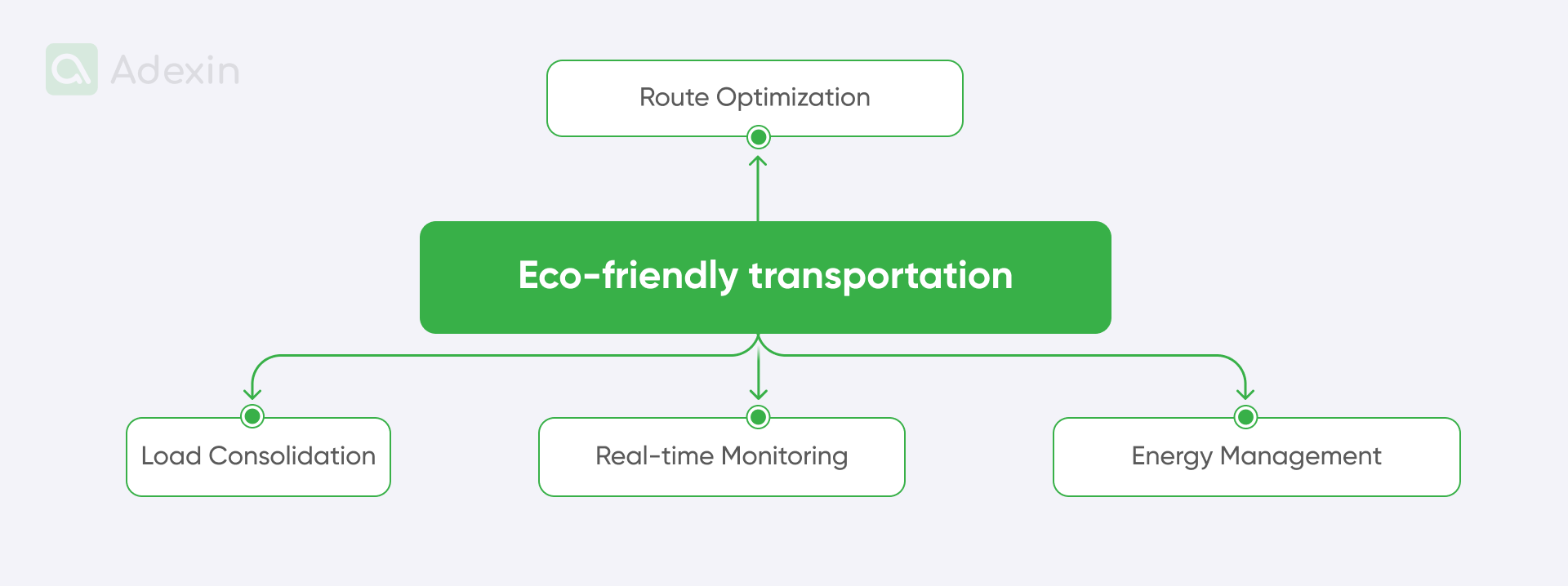Undoubtedly, in every discussion about sustainability in logistics and transportation, the costs associated with environmental or green initiatives always come into play. I have always felt a strong sense of missing this point in many conversations about the transition to greener practices in logistics and transportation. This subject has never been covered sufficiently, even though we all know how many complications and issues arise with electric vehicles that could be used on an industrial scale. However, other points should be mentioned when we talk about sustainable transportation.
In September 2024, I had the chance to visit Belgium to observe the current industrial developments at Transport & Logistics in Ghent. I had the opportunity to engage in an exciting conversation with leading companies in the transportation market on the western side of Europe. While at the venue, I attended a presentation by Philippe Degraef, Director of Febetra.be from Brussels. In his presentation, "Gaan we ons blauw betalen aan de vergroening?" (Will we pay more for going green?), he emphasized the hidden costs of green transitions in transportation on an industrial scale. Are they still higher than fuel costs? Let's see.
So, stay with me as we explore the challenges of transitioning to green practices and the custom solutions for greener transportation systems available to you. Read the article below.
Expenses of green transportation and electric vehicles
Sustainable mobility poses many challenges and pressures from governments, which certainly doesn't make things any easier. The EU has mandated that we transition to greener practices, leading many companies to race toward green trucking to demonstrate public compliance. However, it's unclear how electric vehicles currently fit into the average fleet, and due to limited introductions, we cannot say that their numbers are skyrocketing.
During my visit to Belgium at Transport & Logistics, I found that the Febetra presentation was the first in a long time to address the costs associated with green transportation. Philippe Degraef's presentation was significant because it highlighted essential points. It reminded us to take a step back and consider the potential side effects of the green transition.
"The viability and sustainability of the energy transition are elements that are still far too often neglected."
Philippe Degraef, Director of Febetra

It is not entirely clear to transportation businesses what their additional costs will be for a typical electric vehicle and what factual limitations exist. Considering what technology allows us, we can identify certain constraints related to electric truck fleets. Additionally, it's important to note that this information is specific to each type of vehicle and may vary by country and region:
Cost of vehicle for sustainable transportation
The total cost of ownership gives us a lot to think about. Doesn't technology seem poised to change within the next few years? Another aspect is that maintenance costs are essential not only for the purchase price but also for maintenance costs. Even if insurance and taxes may be somewhat lower, sometimes we must still consider the role of residual value.
Factors like battery fires due to overheating suggest that insurance rates may not be significantly lower. Therefore, when considering financing, there are still questions about whether to lease or buy. Even if government subsidies provide regional support, we don't want to be burdened by the high cost of maintenance.
Range and autonomy: sustainable transportation infrastructure
The natural versus stated range of electric vehicles is often overstated. It is challenging to pinpoint ideal travel conditions that may differ from real-world scenarios. Electric trucks as sustainable mobility are still influenced by weather conditions; for instance, cold temperatures and air conditioning can significantly affect their range. Additionally, driving style plays a crucial role. Aggressive driving behaviors, such as rapid speed acceleration or frequent use of the heater, can further reduce the range. Despite business development, the question again, as above, is whether trucks are advanced enough to buy now.
Loading capacity for your sustainable transportation system
Few of you may know how electric trucks compare to fossil fuel trucks in strength and capabilities. In many cases, they cannot tow as much as conventional trucks. This limitation is often related to the charging system and battery capacity. As truck fleet owners, we also want to know what charging options are available on-site for our electric vehicles. Most transportation companies must build charging stations for trucks on premises, which can be exceptionally expensive.
There are also limitations to public charging. It won't be feasible for trucks to stop at a gas station to charge at a public charging station. Additionally, there are compatibility issues with the standards supported by these stations. So, the types of plugs and voltage can vary, and at times, there might be a risk of overloading the electrical system. And let's remember the importance of the density of charging stations. Is there currently a sufficient network of charging stations? While we are doing well with private transportation, the industry does not cover it enough.

No liquid ADR: sustainable transport issue
When looking at the Agreement concerning the International Carriage of Dangerous Goods by Road (ADR), we can say that the safety benefits of not transporting liquid ADR substances are not entirely clear for trucks. There is still a significant environmental impact, and there are few alternatives for battery recycling (lithium-ion and lead-acid batteries). Currently, no robust system exists for recycling or alternatives to liquid ADR substances that can perform the same function. This raises questions about where to send used batteries and how to utilize them without damaging the environment.
Security of supply energy for alternative fuel vehicles
Dependence on energy sources makes our fleet of electric vehicles very vulnerable. It's essential to understand the security of supply for alternative fuels in urban mobility, which depends on specific energy sources' availability. This situation is always influenced by geopolitical developments. Each company needs to secure its energy supply capacity. I recall when I worked in logistics during an energy shortage, and we were supplied with a generation-sized 40-foot container from an external company. We know that this is an insufficient way of handling energy capacity. Companies should be aware of the potential consequences of not having access to chargers.
Custom solution for eco-friendly transportation
Despite the costs associated with transportation in general, there are ways to formulate solutions that can assist you in transitioning to a more sustainable, green approach. Integrating the complexity of transportation planning can be pretty challenging, and you may have many concerns, especially when considering using several electric trucks in your fleet. Currently, electric trucks are mainly suitable for short distances and local operations. Therefore, you must likely combine various transportation modes and effectively plan for trucks and other logistics options. All that while ensuring compliance with green regulations and EU laws.
To achieve this, it is essential to manage your transportation effectively. A transportation management system (TMS) is the best way to do so. While implementing a TMS may not directly lower the costs of purchasing electric trucks, it can positively impact factors such as reduced maintenance costs and lower energy expenses. But how does a TMS accomplish this?

TOP 4 points where TMS can make your transition into green more cost-effective. Here is what is about it:
Route optimization beyond public transportation
A transportation management system (TMS) minimizes travel distances, allowing you to optimize routes and reduce the distance traveled by electric trucks. Given the importance of every kilometer for electric vehicles, careful planning can extend their range and decrease energy consumption by strategically planning each stop.
By utilizing a TMS, you can also focus on charging infrastructure more effectively. No matter if you're using electric and hybrid vehicles, TMS can plan routes that consider the availability and location of charging stations, ensuring that trucks can recharge efficiently.
Load consolidation: built-in function for sustainable transportation systems
As mentioned, not every electric truck can tow as much as traditional trucks with trailers. However, you can maximize truckload utilization with a transportation management system (TMS). One key strategy is consolidating loads and optimizing truck capacity to fill every available space.
You can reduce the number of trips required by pairing this approach with well-planned unloading routes. Overall, this strategy lowers energy consumption and minimizes vehicle wear and tear.
Real-time monitoring: transport systems for electric cars
Tracking vehicle performance in urban areas and beyond can be enhanced with a TMS system. You can access data on truck location and battery levels by utilizing real-time monitoring within a TMS. Moreover, more advanced TMS solutions provide insights into driving behavior, allowing you to identify when drivers are speeding or behaving less cautiously on the road. This information is valuable for pinpointing areas for improvement and optimizing energy usage.
Additionally, a TMS can facilitate predictive maintenance. This feature lets you monitor vehicle performance, helping you anticipate maintenance needs. By scheduling repairs proactively, you can reduce downtime and maintenance costs. In fact, this is what ensures that your trucks remain operational and well-maintained for much longer.
Energy management not only for greenhouse gas emissions
As previously mentioned, a TMS allows you to develop effective strategies for charging your electric trucks, such as utilizing off-peak hours or charging during periods of renewable energy surplus. Additionally, it constantly monitors energy consumption, enabling you to identify areas of excessive usage. This insight allows you to optimize your charging infrastructure based on route planning, ultimately helping to reduce energy consumption and improve efficiency.
A TMS system generally enables effective compliance management, ensuring regulatory adherence to green regulations and EU laws. Additionally, let's not forget that it contributes to cost reduction by helping you track and manage expenses, thus avoiding costly fines associated with non-compliance.
Need help with custom software development for your transportation business?
Learn how we can help you
Explore moreFinale takeaway on transportation and sustainability
In the end, I would like to express our immense gratitude to Philippe Degraef for sharing his insights and allowing us to elaborate on this highly important topic in logistics and transportation. Considering his experience at Febetra, we can confidently say that there is much more to discuss regarding how transportation should handle future issues. What we said here, should help you avoid jeopardizing business in the rush of a fast green transition.
Let’s not forget that there are always hidden costs in sustainable development that can make it more expensive to run operations smoothly. When we talk about sustainability, it must mean steady changes without significant disturbances even despite the climate crisis. Urban transportation should be energy-efficient and cost-effective at the same time.
If you want to know how we can assist your business with sustainable transportation management, consider a free consultation with us. Whether it’s fleet management, route planning, car rental software, taxi app software, or transport management software solutions, we can help your company align with green practices and legal requirements.
Stay green and reduce carbon emissions in your business with our support. Feel free to contact us.

